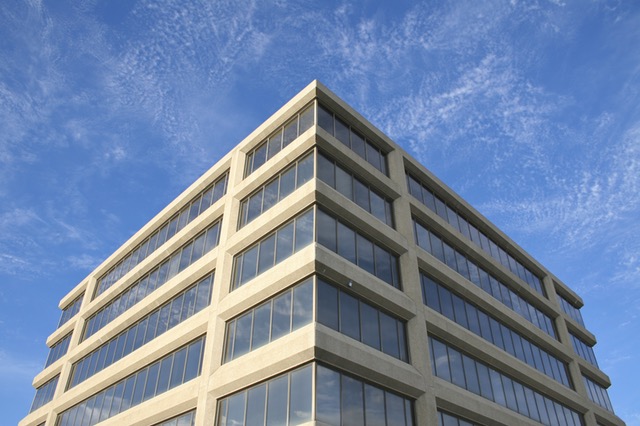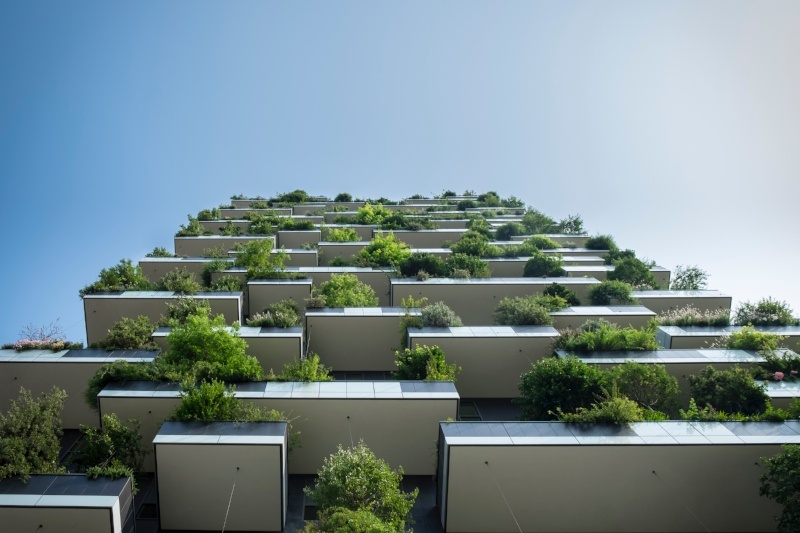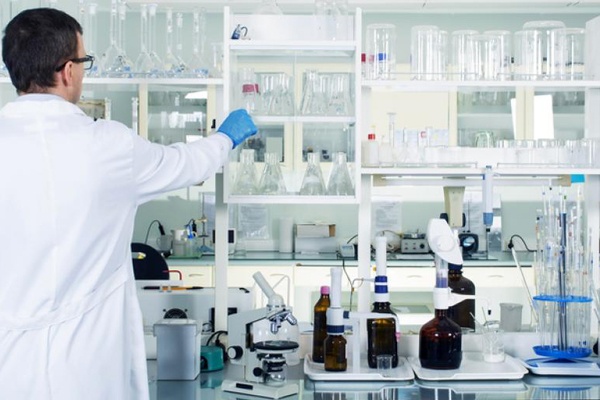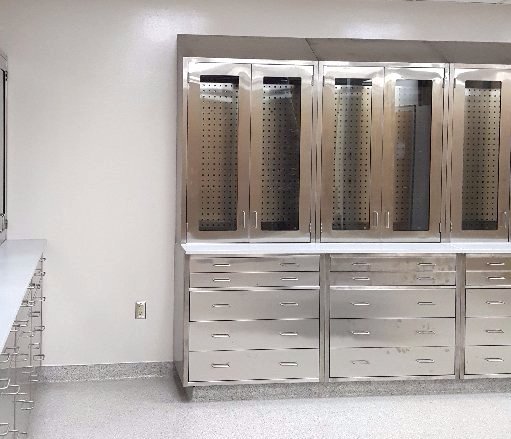When it comes to choosing countertops for your new lab or lab renovation, it can be difficult to decide which is the right option. You have your budget to consider, but then there’s also the fact that you need something that will hold up to the processes your employees have to complete every day. Whether you’re renovating a hospital lab or a food laboratory, here’s a rundown of the 5 most popular lab countertop materials today:
Phenolic Resin
One of the newer products on the market, phenolic resin is made by fusing layers of craft paper saturated in resin. The resin-soaked layers combine to form one solid piece of countertop that’s designed for longevity. The core of any phenolic resin is black, but it comes available with a variety of color coats. One-inch thickness is standard.
The specs:
Phenolic resin countertops are highly chemical resistant and extremely durable. These are great countertops for labs with continuous heat exposure up to 350 degrees Fahrenheit. While phenolic resin holds up very well against impact and stress cracking, it’s important to remember that if you get a coated color countertop, the black core could show through if deep scratches and abrasions occur. These countertops are perfect for just about any application and are sure to hold up well for years to come, but do note that the upfront cost will be a bit higher than other, lower-grade materials.
Epoxy Resin
Epoxy resin has long been the ultimate standard countertop material for most laboratories. It’s non-porous, making it the perfect choice for labs dealing with caustic chemicals, and doesn’t absorb water so is often found around sinks and faucets. Epoxy resin is made by combining a variety of materials–silica, filler material, a hardener, and epoxy resin–and oven-curing the materials in one solid piece.
The specs:
As we mentioned, this has long been the preferred lab countertop choice for most labs. It’s relatively affordable, and provides all labs with the protection they need from things like caustic chemicals, high temperatures, and liquids. Additionally, epoxy resin countertops are through-colored, which means scuffs and scratches don’t show. Since it doesn’t crack or blister, even in extreme conditions, epoxy resin is awesome for all sorts of lab applications, from industrial testing to pharmaceutical labs, to biomedical labs. It’s lower price makes it a more affordable option than phenolic resin, as well.
Stainless Steel
Obviously one of the sleekest choices, stainless steel countertops are highly durable and made from one material – stainless steel. Many labs opt for stainless steel when they’re looking for visual continuity that pairs with overall function. Insanely durable, stainless steel has a lot of benefits, but it might not be the countertop choice for everyone.
The specs:
Stainless steel can be used in a wide variety of applications. It provides high levels of both chemical and heat resistance, though it’s important to note it can corrode over time when exposed to caustic materials. It’s the preferred material for most applications where sterility is of great concern, like medical examination facilities, hospital labs, and biological science labs. If taken care of, stainless steel can last a very long time. The only real drawback to this material is the price. It’s much more expensive than other, more common laboratory countertop materials, but typically this upfront cost is made up for by the durability of stainless steel, and how easy it is to clean.
Edge-Grain Maple
Also known as butcher block, wood countertops are made by laminating hard maple planks together to create a two-inch thick top. This is one of the more affordable choices and can be used in just about any application where chemicals aren’t a big concern.
The specs:
Another very durable option, butcher block countertops are the only material on the market that can take serious wear and tear, and then be resurfaced and repaired at minimal cost, by just about anyone. If you’re looking for a material you can keep looking brand new for years to come, then butcher block is the choice for you! It’s best used in schools and food laboratories, but please note that wood is porous, so it will absorb all kinds of spills. It’s for that reason that wood counters aren’t typically used in labs that regularly complete processes with harsh chemicals.
High-Pressure Plastic Laminate
One of the more affordable options, plastic laminate is made up of a combination of phenolic resin, melamine, and wood fibers. It’s a great all-around countertop that’s best used in dry working conditions like technology labs.
The specs:
Plastic laminate countertops are more affordable because they don’t conform to some of the higher standards required by say, pharmaceutical or medical labs. They’re a heavy-duty, durable material, but they don’t hold up well against acids, moisture, or heat, which means you won’t want this option for a testing lab where you’re using a lot of chemicals. That said, for any dry lab application, they’re a super popular option because they hold up well, look nice, and are very affordable.
If you have more questions about choosing the right laboratory countertops, or if you’ve made a decision and are ready to start your new lab or renovation, be sure to give the experts at Multi-Lab a call! We design and install custom laboratories for a variety of applications, and are more than happy to help you choose the perfect countertop material for your new lab. Give our office a call at 616-646-6990 or contact us online today!






About The Author: MultiLab
More posts by MultiLab